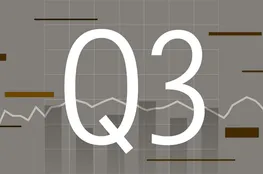In the Philippines, users of loan apps are speaking out against the deceptive and threatening tactics used by these platforms to recover debts. Borrowers like Lance receive hundreds of threatening texts and calls daily, experiencing intimidation and verbal abuse. Lance, who lost his job during COVID-19 lockdowns, turned to loan apps due to his inability to secure a bank loan. Over time, he accumulated nearly one million pesos in debt across more than 20 lending platforms. Now, he resorts to bank loans to manage the escalating penalty fees. Social media is teeming with support groups for users who feel exploited by these apps.
Many users accuse the authorities of failing to curb predatory lending practices. Online lending platforms surged in popularity during the pandemic, attracting millions of users. In 2023, new users increased by 64 percent to 47.5 million, according to Digido. The Philippines' SEC has licensed 140 digital lending companies, though it has revoked the licenses of fewer than 40 for unfair debt collection practices. While these platforms offer easy access to credit, they often employ predatory practices, warns Robert Dan Roces, chief economist for Security Bank Philippines. Kikay Bautista, founder of the United OLA Victims Movement, highlights the growing problem of exploitative lending apps.
Bobbie, a 22-year-old student, fell into debt after being misled by appealing advertisements for loan app MocaMoca. He borrowed 2,500 pesos but received only 1,500 after processing fees, and faced aggressive collection tactics upon missing a payment. Despite the SEC revoking MocaMoca’s license, the platform continues pending an appeal. Bautista’s group has documented hundreds of complaints about various apps. The SEC has capped monthly interest rates at 15 percent, but many apps charge higher rates, leading to further borrower distress.
The SEC is actively investigating fraudulent practices but the response has been slow. Data privacy violations are another concern. The National Privacy Commission once ordered the takedown of four apps for excessive data collection, but these platforms resumed operations after compliance. Mental anguish from debt has severe consequences; some borrowers have contemplated or even committed suicide. Bautista underscores the importance of support networks. Platforms often carry over user data from defunct apps, as with Robocash to Digido.
Despite gathering complaints, Bautista sees little action from authorities like the SEC and PNP. The PNP’s Anti-Cybercrime Group noticed lending platforms after a borrower received threatening funeral flowers. However, actions against these platforms remain limited due to difficulties in establishing the source of threats. Guillermo from the PNP-ACG urges the public to avoid these apps but acknowledges the challenges in fulfilling debt obligations. Bautista calls for a more user-friendly complaints process, noting the difficulties faced by elderly or internet-limited victims.
























